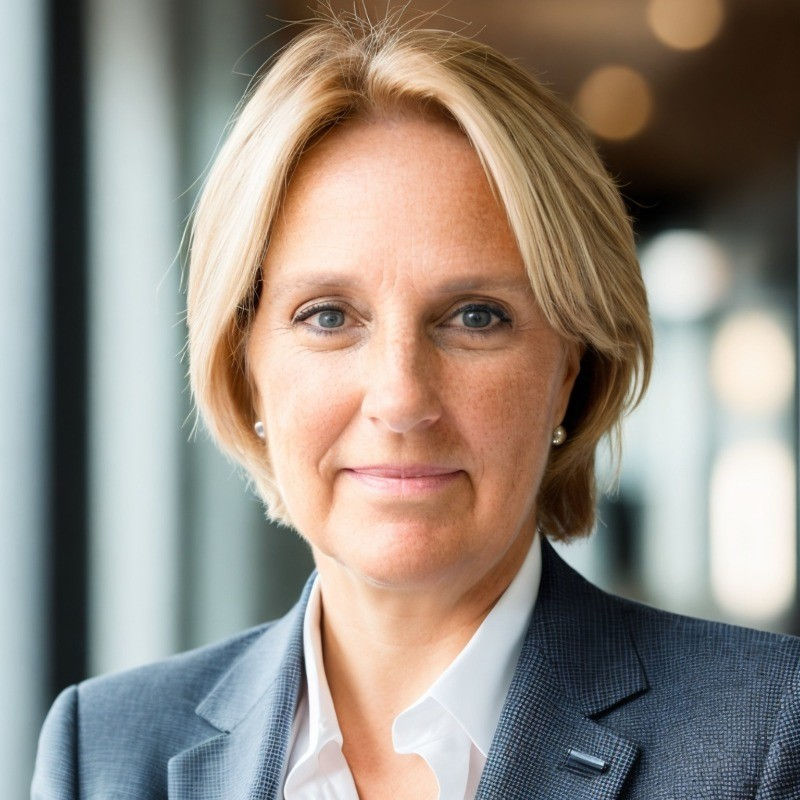ISA Insights: "It’s about knowing your career superpower"
- Christina kehl
- 2. Juli 2025
- 4 Min. Lesezeit
Kennenlern-Interview mit ISA Board Member Cat Rüst

Cat Rüst has founded eight companies, held global leadership roles in banking, and worked across industries and continents. She’s known for challenging assumptions, driving real transformation, and bridging bold innovation with human-centered thinking.
In this interview, Cat shares in this interview what fuels her decisions, why failure matters, and what it really takes to lead with impact in the age of AI – especially for women in tech.
Cat, you’ve built companies, led in corporate environments, and worked across continents. What has kept you motivated to explore such diverse and bold challenges throughout your career?
It’s not really about “motivation” - these moves weren’t part of a grand plan (which might be obvious, given the career zigzags). I intentionally pause regularly to ask: “Am I happy?”, “Am I still learning?”, “Is this taking me closer to what I want?” If the answer’s no, it’s time to shift.
Your career highlights striking contrasts - innovation vs fiscal responsibility, infrastructure vs systems, analysis vs empathy. How do you integrate these dualities in your daily leadership approach?
It’s about knowing your “superpower” - whether it’s operations, structuring, communications, whatever - and using it to stay sharp as work evolves. I’ve never felt tied to a particular industry or title. I focus on building toward a goal and finding the best mix of skills in the team to get there.
You’ve founded eight companies and held a senior global role at a global bank. How has this unique combination of entrepreneurship and corporate experience shaped your strategic thinking?
Start-ups taught me how to move. Corporate taught me where the brakes are. Knowing both helps me decide when to sprint, when to slow down - and when to just change the game entirely.
In your work with AI, data strategy, and digital transformation, how do you balance technical excellence with cultural and human factors that often decide success?
It’s easy to get caught up in tools - but unless you're building with the people, for the people who’ll use them, they won’t stick. I work across teams to design things that are technically solid and actually usable. If it doesn’t land with the humans, it’s not transformation - it’s a prototype.
Many organizations struggle to scale digital and AI initiatives beyond the pilot stage. What have you observed as the most critical enablers of lasting transformation?
It has to be CEO-led. If transformation isn’t driven from the top - with budget, accountability, and a bit of courage - it stalls. You need someone in charge who sees the mess and still says, “Keep going.”Also, shameless plug: I co-authored a chapter in Data Strategy & AI Value Creation for Data Leaders by Data Leaders (World Scientific, 2025) on exactly this—how to get real value from data and AI teams, not just dashboards and hype.
You’re a strong advocate for women in tech. Why do you think this remains such a vital issue - even today?
Because representation still matters. I needed to see women ahead of me to believe I had a place in those rooms. And let’s be honest - in tech, women are still hugely underrepresented outside of HR and marketing. If we want products that actually reflect the people using them, we need more women building them. I’ve seen teams entirely populated by men, build products entirely targeted at women - there were some ugly surprises that would have been obvious had they had women on board!
What needs to happen - structurally and culturally - for more women to not only enter tech but thrive and lead long-term?
Visible role models
Access to real mentors
Career breaks that work for both men and women
Flexible work structures
And yes, female bathrooms - still an issue more often than you’d think
What inspired you to join the Swiss Labour Market Innovation Association (ISA), and what perspective do you bring to the board?
People, people, people! The energy and passion in the team are contagious. I’m probably the one constantly asking “why not?” and pushing the conversation from a different angle - challenging assumptions is my default setting.
You think globally and act systemically. What would it take for Switzerland to remain a leading innovation hub in a world that’s moving fast?
Great question. Switzerland has so much going for it - brilliant education, quality of life, wealth. But innovation needs room to fail, and failure isn’t exactly a Swiss crowd-pleaser. Risk-taking, especially in investing, is still too cautious. Also, Europe’s fragmentation makes scaling harder - unlike the US or China, we don’t have one legal or regulatory system.
So:
Teach kids that failure = learning
Create government-backed big-investment incentives alongside grants
Solve European fragmentation… which smarter people than me have tried, so I’ll leave that one open
To close: Looking five years ahead - what’s your vision for the future of work, and what matters most to you personally on that journey?
I wish more people understood the urgency of learning how AI and Agents work - whatever your role. Too many people have lost their jobs and are applying for the same jobs that no longer really exist. We need to constantly uplevel and figure out how to use tech to enhance what we do, not wait around to be replaced by it.
Der Innovationsverband Schweizer Arbeitsmarkt (ISA) gestaltet die Zukunft der Arbeit. Seit 2024 entwickelt das engagierte Team innovative Lösungen für Professionals, Unternehmen und Verwaltungen, abgestimmt auf die Anforderungen einer dynamischen Arbeitswelt. Mit Fokus auf politisches Engagement, Bildung und Netzwerke stärkt ISA den Schweizer Arbeitsmarkt – agil, inklusiv und zukunftsorientiert.




Kommentare